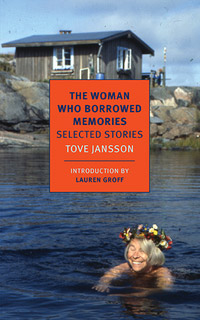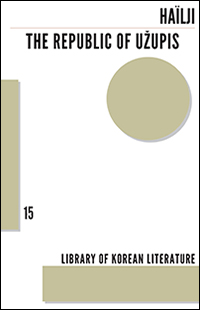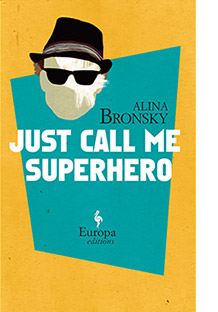 Isolation: that is the most powerful emotion that emanated from most of the stories in The Woman Who Borrowed Memories: Selected Stories of Tove Jansson. As I read them, breathlessly, I was plagued with that wonderful, excruciating sense of unease that radiates from a good, strong, melancholic book. It’s the tingling that comes before the numbness; that profound yet unknown sensation of loss that makes you sigh.
Isolation: that is the most powerful emotion that emanated from most of the stories in The Woman Who Borrowed Memories: Selected Stories of Tove Jansson. As I read them, breathlessly, I was plagued with that wonderful, excruciating sense of unease that radiates from a good, strong, melancholic book. It’s the tingling that comes before the numbness; that profound yet unknown sensation of loss that makes you sigh.
The stories mostly center around one protagonist and are written either in first person or a close third. Set in Scandinavian landscapes, strange and nameless cities or within the confines of a house, these stories follow the protagonists as they become locked in their own minds, detached from the world around them, either physically (the illustrator in Black-White), mentally (Aunt Gerda in The Listener) or emotionally (the sculptor in The Monkey). Often they are propelled into mysterious travel, accompanied by a stranger to whom they are instantly drawn and who highlights their own weakness (The Wolf and A Foreign City). Other times they are experiencing some undefined breakdown of their own, revealing only the symptoms, and not the cause, to the reader (as in The Storm or The Other).
The stories are divided between two translators, Thomas Teal and Silvester Mazzarella. Both translators did a fine job of bringing these faraway and mysterious landscapes closer to the American present, while still preserving Jansson’s simple, spare style, dotted occasionally with poetic wonder. Their language is direct and rich. Of the two, I tended to be drawn more to Teal’s style of translation, which flowed a bit more naturally. That said, I think they were also very successful in unifying their separate styles, so that the stories all mesh together into one voice.
The stories in this collection left me with more questions than answers. They are filled with sweet ennui. When I put all these stories together, I feel that Jansson was trying to convey a certain truth about the human condition: that even in company, we find ways of being alone in spite of ourselves. Yardenne Greenspan, Israel editor-at-large.
***
 “Everyone is responsible for their own freedom.” “Everyone has the right to have no rights.” “Everyone has the right to be of any nationality.” So goes the constitution of the Republic of Užupis, a forty-one clause flight of fancy that declared a neighborhood in the center of the Lithuanian capital independent on April 1, 1997. Haïlji’s dysphoric novel is named after this actual place, but his story spins into another dimension altogether.
“Everyone is responsible for their own freedom.” “Everyone has the right to have no rights.” “Everyone has the right to be of any nationality.” So goes the constitution of the Republic of Užupis, a forty-one clause flight of fancy that declared a neighborhood in the center of the Lithuanian capital independent on April 1, 1997. Haïlji’s dysphoric novel is named after this actual place, but his story spins into another dimension altogether.
We travel alongside Hal, an Asian man who enters Vilnius bearing his father’s ashes and the determination to scatter them in his newly liberated homeland, Užupis. That proves to be a challenge when Hal is met with hostility, terror, and laughter; he is told his country doesn’t exist. All over, though, phantasmagoric traces of the Republic appear—the national anthem surges through a labyrinthine hall, a shadowy figure calls Hal’s name as it fades into an alley, Lithuanians speak his mother tongue but deny its connection to any so-called Užupis. Those who confess remembrance urge Hal to renounce his obsession; he has an antecedent, he learns, who shot himself without ever reaching his destination. Despite this, nothing can displace Užupis from his mind.
Haïlji’s prose, translated by Bruce and Ju-Chan Fulton, is deceptively spare and crystalline. Beneath its placid surface, questions coil and burn. Can homeland be recovered? Is nationhood a joke, a dream, a play? As the Lithuanian winter fills his footsteps with snow, Hal’s linear journey is subverted into a spiral of memory. When we finally emerge, who’s to say whether we’ve reached the story’s end, beginning, or some in-between. As idiosyncratic as its namesake neighborhood, The Republic of Užupis is a story you’ll want to wade into, wander through—wherever you wind up. Hannah Berk, English-language social media manager.
***
 Machi Tawara’s Salad Anniversary is an acutely self-aware portrait of modern life and love. The poet transformed the tanka form by infusing it with contemporary references and colloquial vernacular. These sonnet-like seven-line structures, which the translator Juliet Winters Carpenter reduced to triplets, form stanzas within longer narrative poems. Initially, the exalted experience documented in each triplet struck me as trivial and performative.
Machi Tawara’s Salad Anniversary is an acutely self-aware portrait of modern life and love. The poet transformed the tanka form by infusing it with contemporary references and colloquial vernacular. These sonnet-like seven-line structures, which the translator Juliet Winters Carpenter reduced to triplets, form stanzas within longer narrative poems. Initially, the exalted experience documented in each triplet struck me as trivial and performative.
In retrospect, I realize that the adhesion to poetic considerations and performance of female stereotypes reveal the narrator’s resistance to these models. Both the performativity of societal roles and the structure of tanka enable her to look past the drama of heartache and yearning for domestic life. In doing so, she discovers humor and depth in the quotidian. The author makes room for the unexpected by adhering to formal constraints. She shifts the reader’s attention by discovering the ominous “black shadow of the mike” (120) at a jazz concert or a farcical row of “Chinese cabbages with red sashes” (97) as she wanders the Tokyo streets. Sensorial experiences string together past, present, and future, creating a narrative based on emotionally evocative images.
Tawara’s narrator is objective yet not emotionally stunted. The rehearsed quality of her roles as lover, daughter, and teacher does not strip them of their depth or sincerity. She is confident in her identity and in control of her future. It is no wonder this book triggered a cultural phenomenon in Japan. She describes the source of her desires and frustrations with such precision that they become universal. Elisa Taber, Spanish-language social media manager.
***
 I had looked forward to reading Just Call Me Superhero, Europa Editions’ most recent publication by German writer Alina Bronsky, translated by Tim Mohr. Bronsky is lauded for her writing’s comic invention, her wit, and the depth of her characterization, and Just Call Me Superhero appeared at the very least a smartly written, humorous antidote to the pounds of theory I’ve been wading through. But the book was more than a disappointment: Bronsky’s novel is a tedious, cliché-ridden disaster that manages to dumb down even the most trope-welcome of genres, namely that of “young adult” lit.
I had looked forward to reading Just Call Me Superhero, Europa Editions’ most recent publication by German writer Alina Bronsky, translated by Tim Mohr. Bronsky is lauded for her writing’s comic invention, her wit, and the depth of her characterization, and Just Call Me Superhero appeared at the very least a smartly written, humorous antidote to the pounds of theory I’ve been wading through. But the book was more than a disappointment: Bronsky’s novel is a tedious, cliché-ridden disaster that manages to dumb down even the most trope-welcome of genres, namely that of “young adult” lit.
Though it’s published by Europa Editions, a publisher not typically associated with YA literature—and despite the fact that the novel doesn’t appear to be marketed as such—Just Call Me Superhero relies so heavily on the formal conceits of contemporary YA literature that it’s impossible to divorce the book from the genre. Really, it’s all there: we have a tragically deformed, blockheadedly narcissistic protagonist. We have his beautiful—yet flawed—love interest. We have a group of misfits, gathered together out of who-knows-what reason, who, despite their overwhelming mutual distaste for one another, stick together through thick and thin. We have the group’s idiosyncratic, whimsical leader (known as “the guru”). We have the shock of tragedy—and (I’m not giving anything away here, as any reader can see this coming from miles away) the protagonist’s ultimate redemption.
Let me be clear: my problem with this novel is not that it accords with many generic conceits of YA literature, because YA literature has the capacity of being mind-blowingly good. My problem is not YA literature. My problem is how Just Call Me Superhero writes itself in YA so unimaginatively, as if obliged to check off one hackneyed conceit after the other, until the hard-fought end. The plot progression feels rote; the characters are so predictably implausible that I find myself rolling my eyes at every melodramatic turn. But the melodrama isn’t moving in the slightest: it feels grudging.
What’s more (and this is something I hate to admit, but it must be said), I don’t think Tim Mohr’s translation does the novel any service. Often, sentences feel strangely dated and adult, as though a forty-something were writing as a 1980s teen living in 2014 (think bizarre and inconsistent inclusions of slang, erratic adverbial usage, an overdependence on German syntactical formation). This book is narrated by a first-person, 17-year-old protagonist, but it certainly isn’t any 17-year-old I could ever recognize. If you’re looking for a German-language YA translation, check out Mohr’s far superior translation of Wolfgang Herrndorf’s Why We Took the Car. But steer clear of any Superheroes. Patty Nash, blog editor.
Read more:

